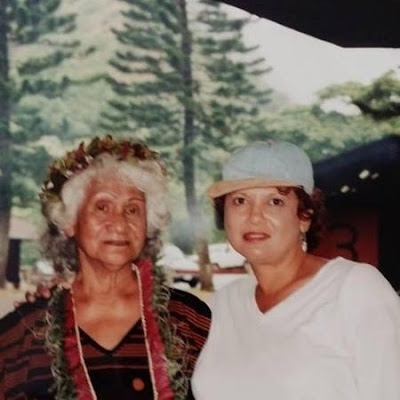 I grew up using pidgin english, a special creole version mixing-up English, Hawaiian, Chinese and Japanese. The latter two ethnicities were the earliest sugar workers from the mid-1880's. Here is a 40-year old book, Pidgin to da Max, by Douglas Simonson.
I grew up using pidgin english, a special creole version mixing-up English, Hawaiian, Chinese and Japanese. The latter two ethnicities were the earliest sugar workers from the mid-1880's. Here is a 40-year old book, Pidgin to da Max, by Douglas Simonson.
If you're local, this form of conversation was necessary to fit-in to your neighborhood society. I lived in Kakaako, where at least 90% of the occupants were Japanese. Thus, our pidgin was somewhat different.
Pidgin was a hindrance when you left for the mainland, for this variety of speech impediment labeled you as different, and probably inferior. Hated speech, and was intimidated from saying much in classes at Stanford. However, there was one course that was giving me the most trouble, Freshman English. I got C's at best on my first two essays. My speaking was not only tarnished, but this carried over into what I read and wrote. My teacher called me in one day and inquired from where I came. I said Hawaii, and she asked what language I spoke at home. I said a kind of English. She felt sorry for me and proceeded to subsequently give me A's and B's, while carefully encouraging me in class.

Today the
Star Advertiser had an article about McKinley High School and the matter of pidgen english. This is possibly true in other locations too, but the key question people ask when meeting someone from Hawaii is: Where you went grad? This is pigeon english for: What high school did you go to? This tells you if you came a rich family (Punahou and Iolani were expensive private schools), while any public school dropped you in status, but indicated exactly where you grew up. Neighbor island high schools were generally considered to be inferior to those in Honolulu.
Anyhow, that article went into President William McKinley High School, and the general disdain Native Hawaiians had for his role in the annexation of the Hawaiian Kingdom to the United States. There has been a long struggle to rename it Honolulu High School, what it was called until 1907. Already, my intermediate school, Central, has been changed to Princess Ke'elikolani Middle School. I'll never remember that.
While the public school teachers union are also in favor of changing the name the state legislature this year did not quite pass a resolution for this re-adjustment, also setting aside naming the Big Island community of Captain Cook to Kaawaloa.
Says Hawaiian cultural practitioner Hinaleimoana Wong-Kalu, who did not attend McKinley, he was no friend to Hawaiians. It would be one thing if you say get rid of the school, but to change the name is about the dignity of the people.
Nanette Kaiwi (
that's her on the left), a Native Hawaiian graduate of the class of 1967, wants to keep the name and statue of McKinley so that the injustices of the past are not forgotten.
I want it to stay because I don't want people to forget that book he is holding is not a treaty, that it's all a lie and that our lands were stolen.
Also in opposition is McKinley High's principal, Ron Okamura, who cited the connection between identity and high school, saying it goes deep into the makeup of who we are. Keeping the name ensures history is learned from and not erased.
About identity, an argument is provided that, if changed, you can always answer dat question with I graduated from Honolulu High School, formerly McKinley High School. What next? This controversy will no doubt fester for a while.
Here is a humorous ending about pidgin english, but in a different way, having to do with how we tend to
use typical pidgin terms, which confuses someone from Japan. Andy Bumatai was
good at pidgin. Liked that? Almost two hours more of
Andy's Daily Pidgin Live.
Day 18 of my Blood Lily bloom:
-
 I grew up using pidgin english, a special creole version mixing-up English, Hawaiian, Chinese and Japanese. The latter two ethnicities were the earliest sugar workers from the mid-1880's. Here is a 40-year old book, Pidgin to da Max, by Douglas Simonson.
I grew up using pidgin english, a special creole version mixing-up English, Hawaiian, Chinese and Japanese. The latter two ethnicities were the earliest sugar workers from the mid-1880's. Here is a 40-year old book, Pidgin to da Max, by Douglas Simonson.











Comments
Post a Comment